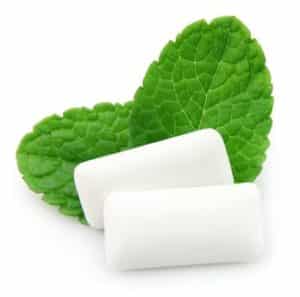
Called “the most prevalent infectious disease in humans,” cavities affect 97% of the population, according to Scientific American. While the common advice to brush and floss regularly is helpful, it’s not the only factor when it comes to oral health and avoiding cavities.
“There are several reasons why some people are more likely to get cavities than others,” explains Dr. David Brusky. “While a few of these reasons stem from lifestyle choices, many do not.”
Avoidable Causes of Cavities
- Oral hygiene. Yes, it’s excellent to brush and floss regularly. Ideally, one should brush at least twice a day and floss once. It’s best to brush about 30 minutes after meals. If this isn’t possible, swishing water around can help to break up sugar and bacterial colonies that can become problematic in the mouth. Brushing technique and brushing for long enough, at minimum 2 minutes, will also play a big role in preventing disease.
- Frequency of sugar consumption. It turns out that frequency matters more than quantity when it comes to eating or drinking sugary substances. Sugar is metabolized into lactic acid by the body. The critical pH level of the mouth is considered to be 5.5 (slightly acidic, compared to the neutral level of 7.0). When the teeth are exposed to a pH lower than 5.5 (more acidic), the enamel will actually begin to demineralize or erode. Thus, the lactic acid produced by the breakdown of sugar causes a higher acidity in the mouth and breaks down tooth enamel. More frequent exposure to sugar never allows the saliva to buffer the acids and return the mouth to a more neutral pH. Sipping is worse than slamming!
- Skipping dentist visits. To prevent cavities from turning into larger problems, visiting the dentist every six months is paramount. These regular visits can ensure better oral health and readily catch small issues.
Unavoidable Causes of Cavities
- Tooth morphology. The shape of the teeth can greatly influence one’s proclivity to getting cavities. For example, a person with natural ridges and deeper grooves, particularly in the molars, can increase the risk of developing bacteria flourish in these crevices. When enough colonies grow, their digestive byproducts can damage the tooth’s surface.
- Type of bacteria. Not all bacteria are created equally. Different strains have different cariogenic (cavity-causing) properties. Even the same type of bacteria can have dozens of strains that affect the teeth and mouth in various ways. Sharing toothbrushes and eating utensils are ways parents, friends, or family members can also unwittingly spread the number of bacterial strains. Tooth decay is infectious, meaning the bacteria that cause it are transmissible to others.
- Salivary composition and flow. Saliva is a natural debriding (cleaning) agent in the mouth, as its enzymes help to break down acids and bacteria. Depending on the composition, determined largely by genetics, some people’s saliva is naturally better at preventing cavities. Other problems can occur if there isn’t enough saliva being produced, or if the flow is too viscous and the teeth can’t be properly cleaned. Lack of saliva is a huge issue for people today since over 400 medications can cause dry mouth.
“While we know cavities stem from a multitude of factors, it’s still important to prevent them as much as possible,” concludes Dr. Brusky. “Besides limiting your sugar intake and brushing and flossing regularly, one of the best things you can do to boost your oral health is to visit your dentist regularly.”
If you’re concerned you may have cavities and want to schedule an appointment, contact us at (920) 662-1440.










